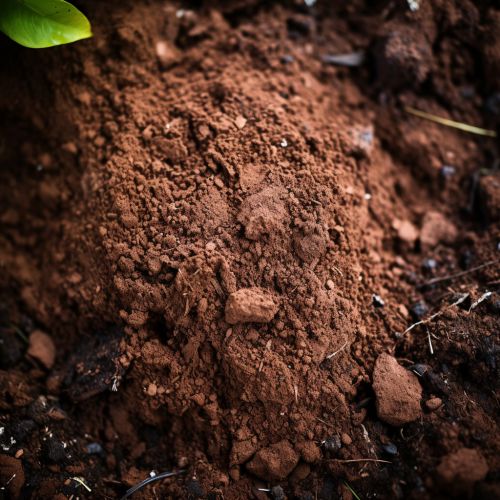The Chemistry of Soil Health and Sustainable Farming Practices
Introduction
Soil health is a critical aspect of sustainable farming practices, playing a vital role in the productivity and resilience of agricultural systems. The chemistry of soil health involves a complex interplay of physical, chemical, and biological processes that influence the soil's ability to function as a living ecosystem and support plant growth. This article explores the intricate chemistry of soil health and its relationship with sustainable farming practices.
Soil Health: An Overview
Soil health, also referred to as soil quality, is the capacity of soil to function as a living system. Healthy soils maintain a diverse community of soil organisms and provide the ecosystem services necessary for plant and animal life. The chemical properties of soil play a crucial role in its health, affecting its structure, nutrient content, and ability to hold and release water and nutrients.
Soil Chemistry and Its Role in Soil Health
The chemistry of soil is a complex field of study involving the investigation of the chemical composition, reactions, and processes occurring in soils. It encompasses the study of soil minerals, organic matter, and soil water, and their interactions with each other and with living organisms. Soil chemistry influences soil health in several ways:
- Nutrient Availability: The chemical composition of soil determines the availability of essential nutrients for plant growth. Soils rich in certain minerals such as nitrogen, phosphorus, and potassium are generally more fertile and conducive to plant growth.
- Soil pH: The pH level of the soil, a measure of its acidity or alkalinity, affects the solubility of nutrients and their availability to plants. Soils with a pH that is too high or too low can inhibit nutrient uptake by plants, affecting their growth and productivity.
- Cation Exchange Capacity (CEC): This is a measure of the soil's ability to retain and supply cations (positively charged ions) to plant roots. Soils with a high CEC can hold and supply more nutrients, contributing to soil fertility.
- Soil Organic Matter (SOM): Organic matter in the soil, derived from plant and animal material, contributes to soil fertility by providing nutrients, improving soil structure, and enhancing water retention.


Sustainable Farming Practices and Soil Health
Sustainable farming practices aim to maintain and improve soil health while minimizing environmental impact. These practices recognize the importance of soil chemistry in maintaining soil health and productivity. Some of the key sustainable farming practices related to soil health include:
- Crop Rotation: This involves growing different types of crops in the same area in sequential seasons. Crop rotation can help to maintain soil fertility and reduce soil erosion.
- Cover Cropping: Growing cover crops, such as legumes and grasses, can help to improve soil health by adding organic matter to the soil, improving soil structure, and reducing soil erosion.
- Organic Farming: Organic farming practices, which avoid the use of synthetic fertilizers and pesticides, can help to maintain and enhance soil health by promoting a healthy soil ecosystem.
- Conservation Tillage: This practice reduces the frequency and intensity of soil tillage, helping to maintain soil structure, reduce soil erosion, and improve water retention.
Challenges and Future Directions
While the importance of soil health in sustainable farming is well recognized, there are several challenges in implementing soil health practices. These include the lack of standardized methods for assessing soil health, the need for more research on the relationship between soil chemistry and soil health, and the need for policies and incentives to encourage farmers to adopt soil health practices. Despite these challenges, the future of sustainable farming lies in a deeper understanding of soil health and the development of farming practices that nurture and enhance it.
